A Brief History of the Canadian Senate
The 150-year journey towards modernizing the Upper Chamber

1865
Sober Second Thought
In the pre-Confederation debates, Sir John A. Macdonald describes his vision for the Canadian Senate, which is created to counterbalance the representation-by-population of the House of Commons. Macdonald describes the Senate as the home of “sober second thought in legislation.”
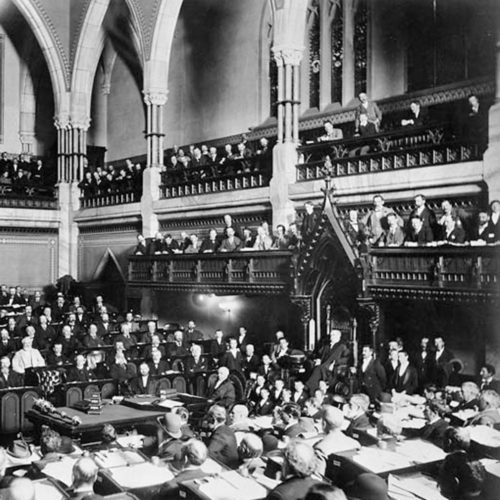
July 1, 1867
Confederation
Canada is founded with a constitutional monarchy, a division of power between federal and provincial governments, and a bicameral Parliament. Bicameral means Canada has two chambers responsible for making federal laws: the elected Lower Chamber, the House of Commons, and the appointed Upper Chamber, the Senate.
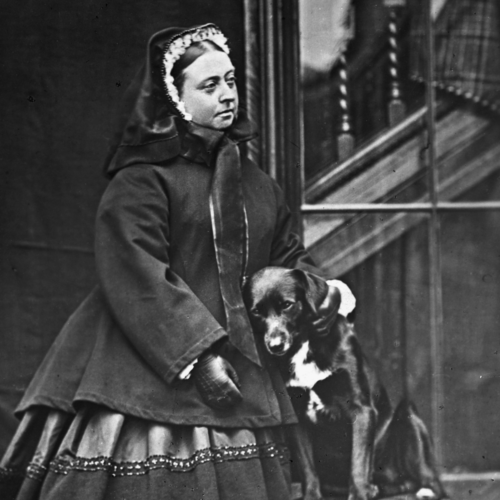
November 6, 1867
First Parliament
The Senate debuts with 72 seats, and Senators are appointed for life. (Today we have 105 seats, and Senators must retire by age 75.) The qualifications for Senators in 1867: They must be over 30, own at least $4,000 in property, live in the province they’re representing and be subjects of Queen Victoria. The rules are different in Quebec, where the qualification is either living in the electoral division in which the Senator is appointed or owning property there. Then, as now, it’s the Senate’s job to review legislation, champion improvements and correct oversights.

1873
Mackenzie's Move
Alexander Mackenzie, Canada’s second Prime Minister, requests the appointment of six additional Senators. The Liberal leader points out that 29 out of 31 Senators appointed since Confederation were Conservatives. The Secretary of State for Colonies refuses to bring the request to the Queen for approval, saying Mackenzie has no constitutional grounds. Mackenzie introduces the notion of Senate reform, an idea that politicians will return to.

1912–14
Borden Blockade
The Liberal-dominated Senate votes down several key bills introduced by the Conservative Government of Prime Minister Robert Borden, including the Naval Aid Bill, which would have allowed Canada to give up to $35 million to Britain for battleships. A longtime supporter of Senate reform, Borden pledges to amend the Constitution to create an elected Senate, but his party’s weak footholds in Quebec and Manitoba force him to pull back.
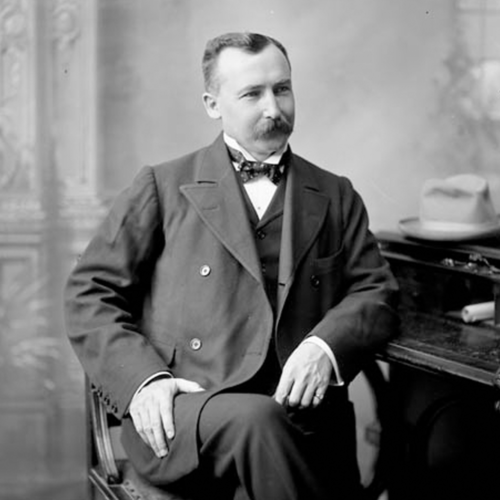
1917
Check, Please
Sir Clifford Sifton, esteemed Canadian politician and lawyer, writes in The New Era in Canada: “No nation should be under unchecked, single-chamber government.... The Senate is not so much a check on the House of Commons as it is upon the cabinet, and there can be no doubt that its influence in this respect is salutary.”
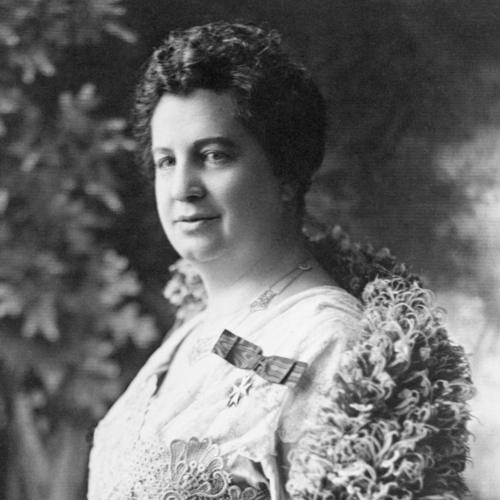
1927–1929
From the West
In response to a judicial challenge by Alberta’s Emily Murphy and four other prominent Canadian women — known collectively as the Famous Five — the Supreme Court rules that women are not “persons” and therefore cannot hold positions in the Canadian Senate. The women challenge the ruling in London, then Canada’s highest court of appeal, which results in the landmark Persons Case (officially Edwards v. A.G. of Canada, 1929), the constitutional ruling that recognizes the status of women as “persons.”

January 31, 1958
Indigenous Pioneer
Senator James Gladstone of the Kainai First Nation takes office as Canada’s first Indigenous Senator. As a “status Indian,” he is denied the right to vote in a federal election until eligibility laws are changed in 1960.

June 2, 1965
Mandatory Retirement Law
Senators are now required to retire at age 75. Before this legislation came into effect, Senators were appointed for life.

1981
Triple-E Senate Movement is Born
The Canada West Foundation publishes a study that argues in favour of an elected Senate that has equal representation of provinces. The proposal gains momentum and becomes known as the Triple-E Senate movement, meaning “elected, equal and effective.” (“Equal” means ensuring an equal number of Senators from each province.)

1987
Meech Lake
Prime Minister Brian Mulroney and the provinces negotiate the Meech Lake Accord, a series of proposed amendments to the Constitution that includes reforms to the Senate. The accord — which contains a provision to give the provinces more authority over the way Senators are selected — fails to be ratified by all provinces by the June 1990 deadline.

1989
Getty’s Way
Don Getty, the former CFL star, takes a historic step as Alberta Premier by holding Canada’s first Senator-in-waiting election. Though the results are non-binding, the winning candidate, Stan Waters, is appointed to the Upper Chamber the following year on the advice of Prime Minister Brian Mulroney.

October 26, 1992
Charlottetown Accord Rejected
The Charlottetown Accord proposes constitutional changes, including an elected Senate. The accord is submitted to a public referendum on October 26 and is rejected by a majority of Canadians in a majority of provinces.

2011
Reform Bill
In June 2011, Prime Minister Stephen Harper’s Government introduces the Senate Reform Act — a two-part bill that proposes nine-year term limits for Senators and creates a framework for provinces and territories to elect Senate nominees for the Prime Minister to consider. The Government of Quebec challenges the validity of the bill at the province’s Court of Appeal. The federal Government later asks the Supreme Court of Canada to examine the constitutional requirements of Senate reform.

June 2012
Senate Expenses
Auditor General Michael Ferguson recommends that the Senate administration improve oversight of expenses in a detailed audit that highlights a lack of documentation for some claims. This begins a years-long period of inquiries and audits into the living and travel expenses of Senators. The Senate makes changes to rules surrounding travel and proof of residency in the wake of the scrutiny. Three Senators initially face criminal charges. After Senator Mike Duffy is acquitted of all charges in April 2016, following a high-profile trial, the two other cases are dropped.

January 29, 2014
The Independence Era Begins
Justin Trudeau, leader of the Liberal party, announces that Liberal Senators will no longer sit in the national caucus along with elected MPs. This effort signals a move away from partisanship in the Upper Chamber and paves the way for future modernization measures.

April 25, 2014
Obstacles to Reform
In a landmark decision, the Supreme Court rules that Senate reform proposals by the Harper Government — including instituting term limits for Senators and transforming the Senate into an elected chamber — require the approval of at least two-thirds of provincial legislatures, representing at least 50 per cent of the Canadian population. The ruling further details that Senate abolition would require the unanimous consent of the Senate, the House of Commons and all provincial legislatures.
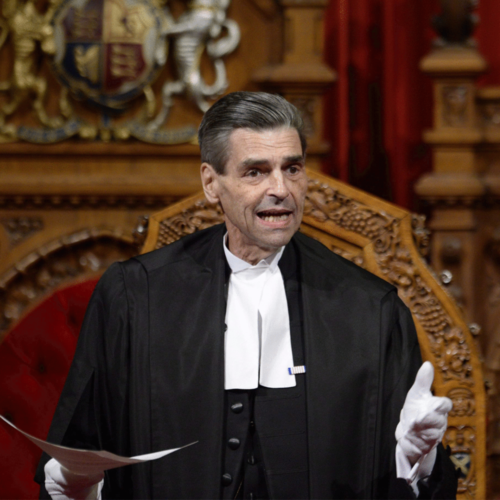
May 8, 2014
Senate Committee on Modernization
Senator Pierre Claude Nolin proposes that a “Special Committee on Senate Modernization be appointed to consider methods to make the Senate more effective, more transparent and more responsible, within the current constitutional framework, in order, in part, to increase public confidence in the Senate.”

June 16, 2014
New Senate Code of Ethics
The Senate adopts a new, more robust Ethics and Conflict of Interest Code for Senators to enhance public confidence in the institution, provide greater guidance for Senators surrounding potential conflicts, and establish a transparent system to review conduct by an independent, nonpartisan adviser.

June 2015
Expenses Audit
Auditor General Michael Ferguson releases a comprehensive audit of Senate expenses that flags nearly $1 million in questionable claims, and recommends more oversight, accountability and transparency when it comes to Senators’ expenses. In response, the Senate requests that retired Supreme Court Justice Ian Binnie act as a special arbitrator for Senators who dispute findings in Ferguson’s audit. Binnie finds in a March 2016 report that Senators acted in good faith and that many didn’t owe as much as found in the auditor general’s report.
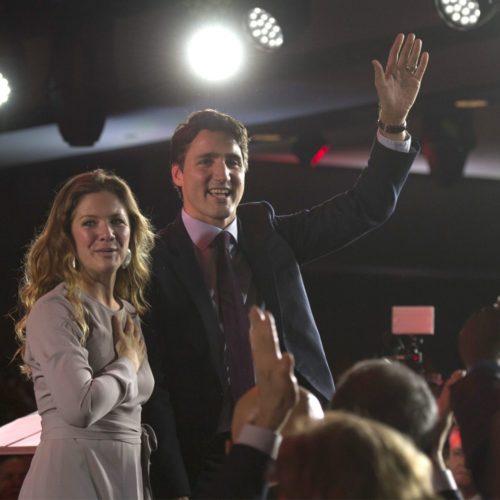
October 19, 2015
New Government
Led by Justin Trudeau, the Liberal Party wins a majority of seats in the House of Commons, allowing it to form a majority government. Trudeau is sworn in as Canada’s 23rd Prime Minister Minister on November 4, 2015.

December 3, 2015
New Senate Appointment Process
The Liberal Government announces the establishment of a new, nonpartisan, merit-based process to advise on Senate appointments.
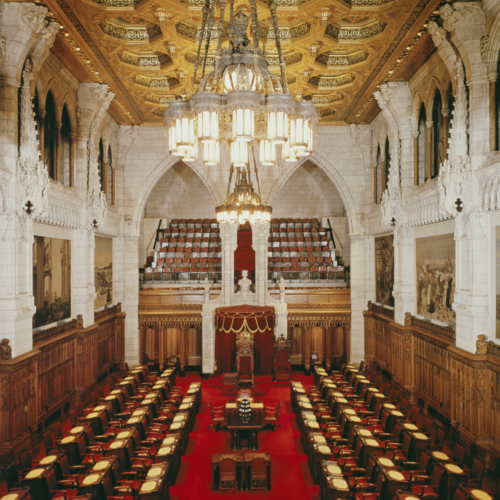
December 10, 2015
Broadening of Question Period
The Senate votes to invite federal ministers to Question Period in the Red Chamber in order to respond to questions about their ministerial responsibilities.

January 19, 2016
New Advisory Board
The new, nonpartisan Independent Advisory Board for Senate Appointments is established, consisting of three permanent federal members and two members from each province and territory where there is a Senatorial vacancy. The board’s mandate is to provide merit-based, non-binding recommendations for new Senators from this process.

February 3, 2016
First Minister in Senate Question Period
Minister of Fisheries Hunter Tootoo becomes the first Cabinet Minister to attend Senate Question Period on behalf of the Government. Since his appearance, ministers have regularly appeared at Senate Question Period.

March 18, 2016
The Government Representative in the Senate
Senator Peter Harder becomes the first Senator appointed as an independent under the new system. Senator Harder is named as the Government Representative in the Senate, responsible for introducing Government bills to the Senate, engaging discussion on the merits of these bills and championing Senate modernization efforts.

April 12, 2016
Seven New Senators
Seven new independent Senators are formally introduced in the Senate chamber, representing a diverse range of backgrounds and provinces. They are Peter Harder; Raymonde Gagné, lifelong education advocate; Frances Lankin, former president and CEO of United Way of Toronto; Ratna Omidvar, academic and advocate of immigration and diversity; Chantal Petitclerc, gold-medal-winning wheelchair athlete; André Pratte, journalist and former editor of La Presse; and Murray Sinclair, former judge and chair of the Truth and Reconciliation Commission.
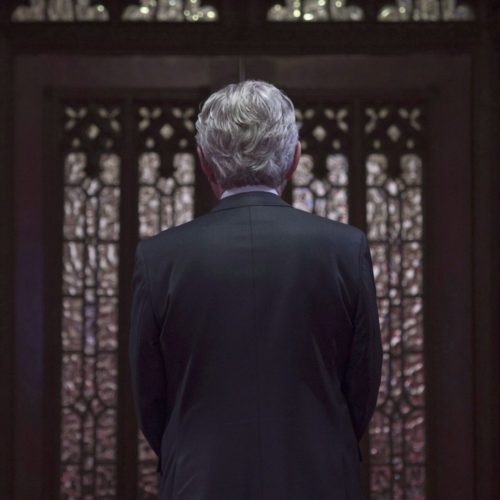
April 19, 2016
Senator Harder’s Vision
Senator Harder makes his first speech in the Upper Chamber. He presents a vision for a more independent, accountable and transparent and less partisan Senate that acts as a truly complementary chamber to the elected House of Commons. “I firmly believe that Canada needs a Senate, even more today than at any point in its history. That is why I am here,” he says. “No country as large as Canada, as regionally, linguistically and culturally diverse, can function properly without a second chamber in its national political institutions. Our Constitution insists on it — and well it should.”

May 2016
Senators Mitchell and Bellemare join the Government Representative Office
Two veteran Senators, previously with other established parties, join Senator Harder in the Government Representative Office in the Senate. Senator Diane Bellemare, a former Conservative Senator, serves as legislative deputy to the Government Representative, and Senator Grant Mitchell, a former Liberal Senator, serves as Government liaison.

July 2016
Proactive Disclosure
The Senate makes a historic move in favour of transparency and accountability by beginning to collect more data about Senators’ expenses. Moving forward, quarterly reports are published, proactively disclosing all contractors Senators engage, and all living, travel and hospitality expenses.

June 22, 2016
Bill C-10
Bill C-10, the first government bill sponsored by an independent Senator under the new appointment system, is adopted in the Senate. Senator André Pratte sponsors the legislation, which updates the Air Canada Public Participation Act — a 1988 bill that paved the way for privatization of the airline — and proposes more flexibility to Air Canada to operate its aircraft maintenance plants and services in Ontario, Quebec and Manitoba.

July 2016
Open Applications
To further the goal of inclusivity, the Independent Advisory Board for Senate Appointments invites Canadians to apply for 20 current and upcoming vacancies in seven provinces: British Columbia, Manitoba, Ontario, Quebec, New Brunswick, Nova Scotia and Prince Edward Island.
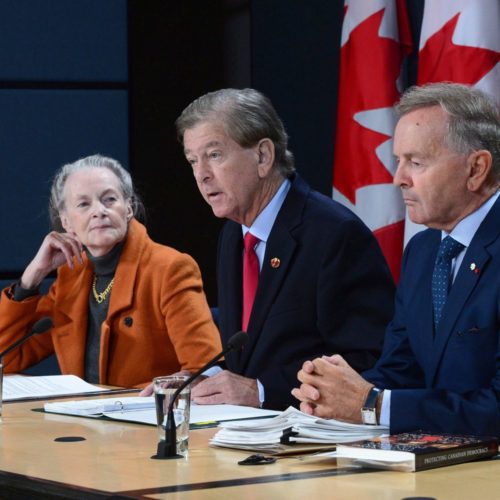
October 4, 2016
Modernization Report Released
The Special Committee on Senate Modernization publishes its first report, Senate Modernization: Moving Forward, which makes 21 key recommendations to create a more open, inclusive and effective institution. The recommendations include televising Senate debates so Canadians can more easily see how Senators bring value to Parliament, updating committee membership rules so that Senators who do not belong to a particular political party can fully participate, and establishing rules to divide omnibus bills so that they can be properly reviewed by committees.

November 22, 2016
Not the House of Lords
Senator Peter Harder publishes his opinion paper Tall Tales of the Senate and a Withering Westminster, and details how he believes a more independent Senate can be made to work within the traditional parliamentary system. “The 150-year-old duopoly of Conservatives and Liberals in the Red Chamber is over,” he says. “Our system of government is extremely adaptable, and our Senate does not have to be identical to the House of Lords.”

November and December 2016
A Plurality of Independents
A total of 20 new independent Senators from a wealth of disciplines and regions are introduced in the Senate chamber. They are Marc Gold, Marie-Françoise Mégie, Raymonde Saint-Germain, Marilou McPhedran, Wanda Thomas Bernard, Tony Dean, Sarabjit S. Marwah, Lucie Moncion, Howard Wetston, Diane Griffin, Renée Dupuis, Yuen Pau Woo, Patricia Bovey, René Cormier, Nancy Hartling, Gwen Boniface, Éric Forest, Dan Christmas, Rosa Galvez and Kim Pate. Independent senators not affiliated with any political party now have a plurality in the Upper House.

December 6, 2016
Funding for Independent Senators
The Senate votes to authorize funding for the substantial number of independent Senators who have become a group in the Senate—even though Senate rules recognize and fund only caucuses formed by members of a political party. A few months later, the Senate rules are officially changed to recognize parliamentary groups that are not affiliated with a political party.

December 7, 2016
Independent Seats on Committees
Independent Senators are given a proportionate share of seats on Senate committees. Prior to this change, independents were significantly under-represented on committees, where a substantial amount of Senate work is done, including proposed amendments to legislation. The sessional order, which gives independent Senators 40 per cent of committee seats, is set to expire at the end of the parliamentary session or on October 31, 2017, whichever comes first. A permanent solution must still be determined.

December 21, 2016
Open Online Application
The Independent Advisory Board for Senate Appointments invites Canadians to apply for six Senate vacancies expected to become available during 2017 in the following three provinces: New Brunswick, Nova Scotia and Ontario.
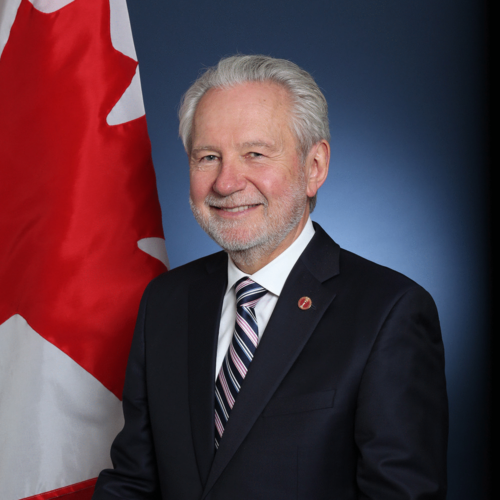
March 31, 2017
Sober Second Thinking Proposal
Senator Harder proposes the creation of a Senate business committee to set a timetable for the deliberation of parliamentary business. This move supports Canadians’ desire for progress towards a Parliament that is less consumed by partisan rubber-stamping and more focused on substance of public policy.

May 2, 2017
Senate Committee Recommends Expulsion of a Senator
The Senate’s Standing Committee on Ethics and Conflicts of Interest recommends in a detailed report that Senator Don Meredith be expelled over his inappropriate sexual relationship with a teenage girl. The committee details that the Senate does have the power and authority to expel a Senator — an unprecedented move. The recommendation comes after the Senate Ethics Officer’s comprehensive March 9, 2017 report details how Senator Meredith breached the Senate’s code of conduct. Meredith resigns before the Senate can vote on the committee’s recommendation to expel him.

May 11, 2017
New Definition of Caucus
Senate votes to update rules to recognize a caucus as a group of nine or more, additionally removing the requirement that a caucus must be formed by members of a political party. Members of new parliamentary groups now have the same rights and access to funding as those who are part of a political party.
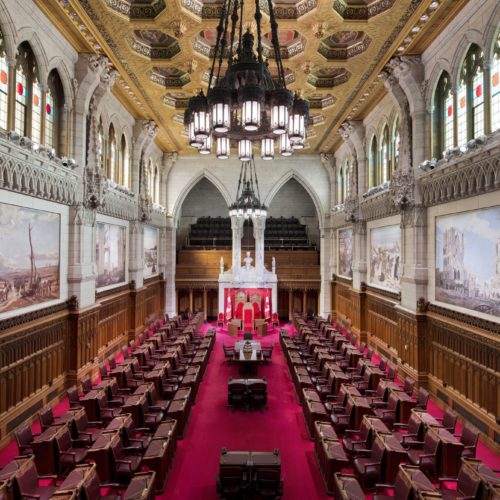
September 15, 2017
Call for Independent Oversight on Senate Expenses
In a policy paper, Senator Harder argues that it’s high time for the Senate to act on the Auditor General’s 2015 recommendation for independent oversight on Senate expenses.

November 7, 2017
Independent Senators receive new leadership roles
The Senate approves an agreement that gives Independent Senators a proportionate number of chairs in the all-important committee system. It also gives Senators from all groups in the Senate a proportional number of seats on committees. The new agreement comes after the expiration of a temporary order put in place in December 2016 to allow the growing number of Independent Senators membership on committees.

February 6, 2018
Televised hearing on Cannabis Act
The Senate opens its doors to three ministers and a parliamentary secretary for a rare televised hearing on legislation that sets the framework for legalizing, regulating and restricting access to cannabis. At this time, Senate proceedings are usually available in audio only, however plans are underway to ensure that the Senate’s temporary home during the renovation of Centre Block will be equipped with cameras and resources to enable the broadcasting and webcasting of proceedings. The move to the temporary chamber is expected in 2019.

April 12, 2018
Discussion paper on role of the Senate
The Government Representative in the Senate releases a comprehensive blueprint on how the renewed and increasingly independent upper chamber should deal with legislation and exert influence over policy. Senator Peter Harder’s discussion paper lays out principles on how the evolving Senate should make decisions, including when it is appropriate to amend bills and when it should defer to the will of the elected House of Commons. The paper also emphasizes that the appointed chamber should view defeating legislation as a rare last resort, and should refrain from defeated legislation that delivers on election promises.

December 13, 2018
Last Senate sitting in Centre Block before renovation
Governor General Julie Payette gives Royal Assent to six bills during a traditional ceremony in the Red Chamber, marking the final sitting in Centre Block before a major renovation. The renovation of Centre Block, which was rebuilt between 1916 and 1927 following a devastating fire, is expected to take at least a decade.

February 19, 2019
Senate in new temporary chamber
Four new independent Senators are sworn in on the same day the Senate sits for the first time in its new temporary chamber. What was once the concourse of Ottawa’s historic downtown train station was transformed into a temporary Red Chamber as the Parliament Hill building that has been the setting for nearly a century of debates undergoes a much-needed renovation. With the new appointments, the proportion of women in the Senate increases to 47 per cent and the proportion of Senators with Indigenous roots rises to 11 per cent.
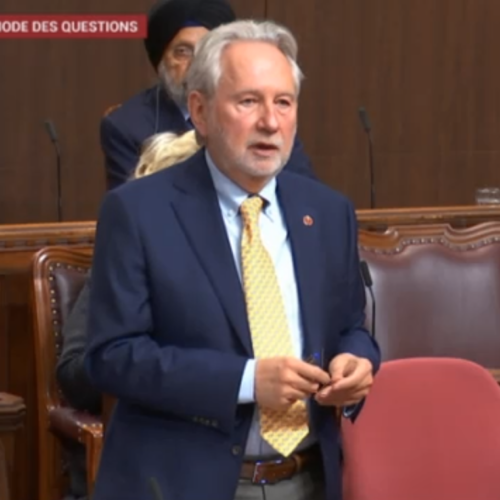
March 18, 2019
Proceedings now televised
Video broadcasts of Senate proceeding begin, marking the first time sittings in the Red Chamber are regularly televised. The Senate was previously live streamed in audio only, with the exception of certain special hearings broadcast on television, including debates over legislation for medical assistance in dying and legislation to legalize cannabis. The chamber is now equipped with nine cameras for live streaming of proceedings.

November 2019
New Senate groups
The increasingly independent Senate continues to become less partisan with the creation of two new groups in the Senate: the Canadian Senators Group and the Progressive Senate Group. In addition to the Government Representative Office, there are now four groups in the Senate, with the Conservatives operating as a partisan caucus linked with colleagues in the House of Commons.

October 1, 2020
Independent oversight on Senate expenses
The Senate follows through on the Auditor General’s 2015 recommendation for independent oversight on Senate expenses with the creation of a committee that includes external members. The unanimous decision creates the Standing Committee on Audit and Oversight, which includes three Senators and two members who are not Senators.

October 27, 2020
Hybrid sittings
As the COVID-19 pandemic continues, the Senate adopts a plan for hybrid sittings, allowing Senators physically present in the chamber and those participating virtually to debate, ask questions and vote.

June 23, 2022
Parliament of Canada Act
Changes to reflect the new reality of a more independent and less partisan Senate are adopted as part of Bill C-19, budget implementation legislation. It provides for the equitable treatment of Senate leadership groups, including extending consultations on the appointment of certain officers and agents of Parliament to all official Senate groups.
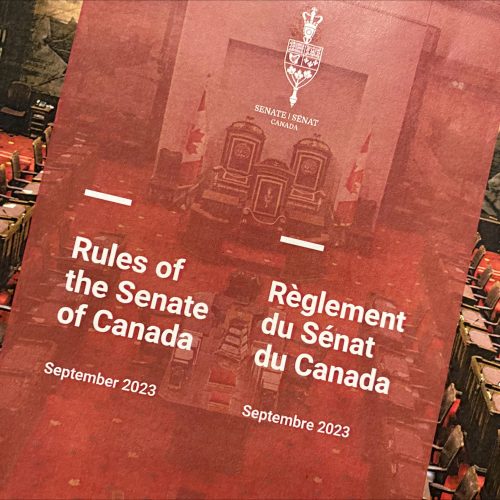
May 8, 2024
Rules of the Senate updated
The Senate adopts a comprehensive package of rule changes to reflect the reality of a more independent and less partisan institution.
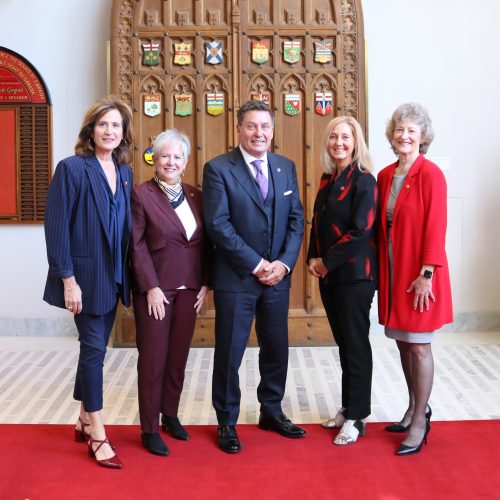
September 25, 2025
GRO grows to five members
The Government Representative’s Office (GRO) in the Senate expands to five members to increase regional representation. Senator Pierre Moreau (Quebec) is the Government Representative in the Senate; Senator Patti LaBoucane-Benson (Alberta) is Legislative Deputy; Senator Iris Petten (Newfoundland and Labrador) is Government Liaison; Senator Pat Duncan (Yukon) is Deputy Government Liaison; and Senator Sandra Pupatello (Ontario) is Chair of the GRO.



















































